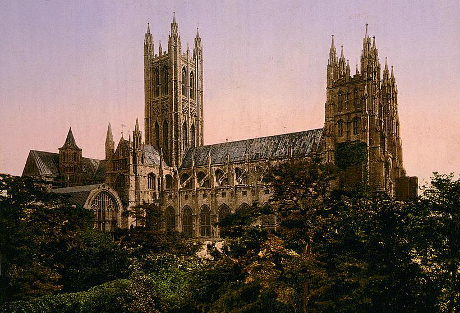Blog

February marks LGBT History Month in the United Kingdom, and despite same sex marriage being legal since 2013, there is still arguably a long way to go for LGBT equality. For example, there is still immense homophobia in football, evidenced by Robbie Rogers and Thomas Hitzlsperger only feeling they were able to come out having already announced their retirement.
Before being provided with any ‘conditions’ a sweeping socially liberal attitude can be summarised as “do and say what you like, so long as it doesn’t incite hatred or violence”. People may not agree with this position entirely, but it’s one that sparks an interesting debate when you raise the question of freedom of sexuality versus the freedom of religion.
Essentially a narrowed down version of the freedom of religion versus freedom of expression debate, the talking point raises a number of legal issues. Can the religious co-exist alongside the liberally-minded? Can legislation be developed that satisfies both parties despite the potentially polarising opposites? Can someone be homosexual and religious?
Historically, Christian values were significantly more prominent in English law than they are today. In 1866, marriage was defined as being between a man and woman, and the judgement of the Hyde v. Hyde and Woodmansee case began, “Marriage as understood in Christendom is the voluntary union for life of one man and one woman”. Additionally, as member of the community that drafted the Universal Declaration of Human Rights, the UK is intrinsically linked to the articles of the declaration that international lawyers believe to be a part of customary international law. Article 18, in particular, is “Everyone has the right to freedom of thought, conscience and religion.”
Notably, the declaration doesn’t mention that people have the right to ‘force’ their religion on to others. However, it doesn’t mention either that religious beliefs can be encroached upon by the law. This is where the Marriage (Same Sex) Act 2013 becomes contentious. The Church of England has refused to bless same-sex marriages and declared that any member of the clergy who married a same sex partner would be defrocked. Is this legal? Kind of.
The Act itself contains, or rather doesn’t contain, any opt in mechanism for the Church of England. In fact, the government covered their backs with regard to protecting the Church of England’s freedom of religion by providing a “quadruple lock” for religious groups who oppose gay marriage:
- No religious organisation or individual is compelled to marry same-sex couples or to permit this to happen on their premises
- Making it unlawful for religious organisations or their ministers to marry same-sex couples unless their organisation’s governing body has opted in
- Amending the Equality Act 2010 to ensure no discrimination claim can be brought against religious organisations or individual ministers for refusing to marry a same-sex couple
- Explicitly stating that it will be illegal for the Church of England and the Church in Wales to marry same-sex couples.
As a result, people of the same sex who wish to marry in the Church of England don’t have complete freedom and religion and freedom of expression. Canon Law forms part of the law of the land and the canon that states that marriage is in its nature a union of a man and a woman, remains in force. What happens then if a member of the clergy breaks the rules? Do they have a leg to stand on if they contest being defrocked?
Jeremy Pemberton married and was subsequently stripped of the permission to work as a priest, but Andrew Cain also married but holds his position freehold, which means that he can only be dismissed for doctrinal offences. With the Church of England requesting to be exempt from the legislation and declaring their belief that marriage should only be between a man and woman, it will be difficult for the Church to argue that its opposition to gay marriage is not doctrinal.
Same-sex marriage is an interesting development in the law, and it’s highly unlikely there will be no other cases surrounding this issue.
Academy tools to help you get a job
-

Free Watson Glaser Practice Test
Understand the test format, compare your performance with others, and boost your critical thinking skills.

